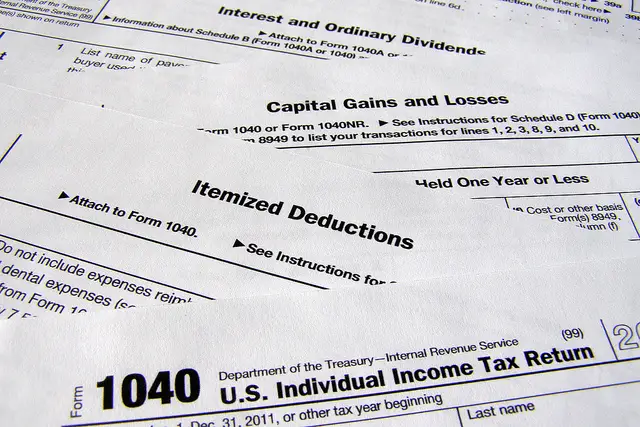Last Updated on 02/19/2018 by GS Staff
[otw_shortcode_dropcap label=”Q:” size=”large” border_color_class=”otw-no-border-color”][/otw_shortcode_dropcap] What do underwriters look for on tax returns?
[otw_shortcode_dropcap label=”A:” size=”large” border_color_class=”otw-no-border-color”][/otw_shortcode_dropcap] An underwriter may review tax returns for a number of reasons. Some of these reasons may be to verify rental income, self-employment income, or investment/retirement income. The underwriter’s job is to verify that the borrower makes enough income to cover the mortgage payment and other potential monthly debts.
In broad terms, the underwriter will review the tax returns for income and potential losses. For example, the tax returns may reflect that the borrower has received positive rental income for the prior two years, but also reported business losses for this time period. The underwriter will consider both the income and losses when making an underwriting decision. How potential income or losses are considered for loan approval or denial purposes will depend on the lender’s guidelines and type of loan.
Here is a list of some of the income that can be verified, fully or partial, by the underwriter using the tax returns:
- Pension and Annuities
- Social Security
- Capital Gains
- Dividend Income
- Business Income (Schedule C)
- Rental Income (Schedule E)
- Alimony Received
- Farm Income
- Partnership, S Corp, and Other Self-Employed Income
- IRA Distributions
- Interest
Keep in mind the underwriter will commonly require that the borrower provide a signed 4506-T. This form allows the lender to obtain a transcript of the filed tax returns from the IRS. The underwriter then has the ability to compare the tax returns to the IRS transcripts to verify if any discrepancies exist. It is important for the borrower to provide the underwriter with the tax returns that match the returns that were filed with the IRS. Discrepancies found on the transcripts may potentially need to be addressed by the borrower, which may cause delays in the mortgage decision.
Ultimately, the borrower should expect the underwriter to complete a full review of the tax returns if they were required for lending purposes. The underwriter will commonly review not only the income that was reported by the borrower on the application, but all income or losses on the tax returns. Note that tax returns are not always a requirement by some lenders. For example, a borrower’s only source of income may be a salaried job, which can often be verified with paystubs and W-2s. The borrower should check with his or her lender or loan officer for the their loan documentation requirements.
Image Credit: ccPixs.com
